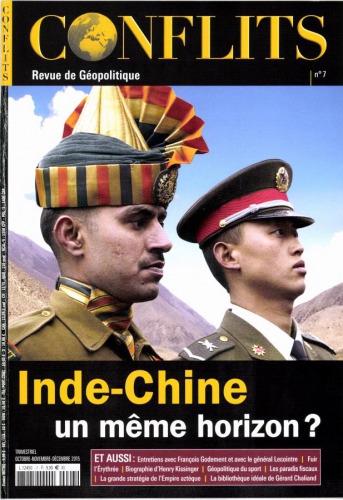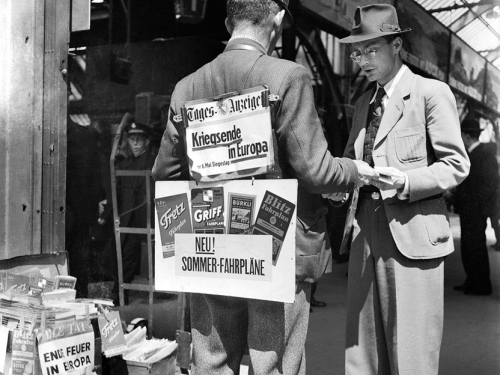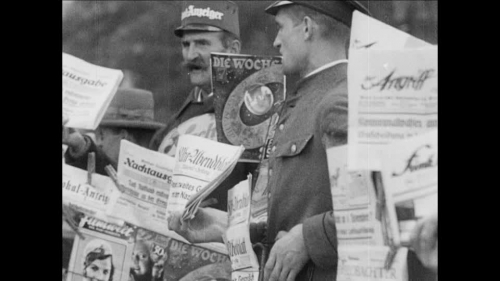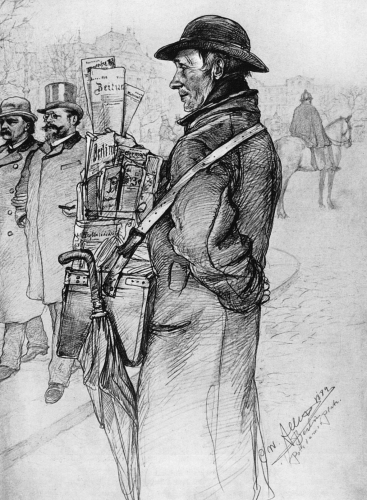
Presseschau
Oktober 2015
Wieder einige Links. Bei Interesse einfach mal anklicken.
Diesmal erneut ein quantitativer Rekord an Links, fast doppelter Umfang, der faktisch den Rahmen der Presseschau zu sprengen droht. Die Ereignisse überschlagen sich angesichts der Einwanderungskrise.
###########################################
AUßENPOLITISCHES
Signal an Russland
Deutsche Eurofighter erstmals mit voller Kriegsbewaffnung über Baltikum
Österreich: FPÖ verdoppelt Stimmenanteil
Katalonien Die Schwaben Spaniens pokern hoch
EU-Vertrag von Lissabon sieht Todesstrafe vor
Europa im freien Fall
(Eine Stimme aus Schweden)
Ich will mein Land zurück ! Ingrid Carlqvist über den Multikulti-Albtraum
Offener Brief des Erzbischofs Amel Shimon Nona von Mossul aus dem Irak
"Unser heutiges Leiden ist ein Vorgeschmack darauf, was ihr Europäer und Christen in naher Zukunft erleiden werdet…"
Grenze zu Jordanien
Israel baut neuen Hochsicherheitszaun
Die israelische Regierung will keine syrischen Flüchtlinge aufnehmen. Stattdessen wird jetzt auch an der Grenze zu Jordanien ein neuer Zaun errichtet. Vor allem soll er Terroristen und Schmuggler fernhalten.
Mangelnde Solidarität unter Arabern
Die Grenzen der reichen Golfstaaten sind für Flüchtlinge aus Syrien fest geschlossen. Das sorgt für Spott und Scham in den arabischen sozialen Medien.
Ölstaaten wollen keine Flüchtlinge aufnehmen – weil sie Instabilität fürchten
EU-Kommissar: Visafreiheit für Türkei in zwei Jahren möglich
Globale US-Interessen
It’s the economy, stupid!
(Zur US-Politik)
Axel Retz: Offener Brief an Politiker und Medien – Der vielleicht wichtigste Brief der gegenwärtigen Zeit
US-Regierung: Europa muss Flüchtlingskrise selbst lösen
Der nicht mehr ganz so geheime Globalisierungsplan der USA
USA
Zahl der Morde in US-Städten steigt massiv
Kaum eine Nacht vergeht in den USA ohne ein paar Leichen auf den Straßen. Städte wie Chicago sind berüchtigt für Bandenkriege und bewaffnete Konflikte. Doch nun steigen auch in anderen Städten die Mordraten. Kriminologen rätseln über die Ursachen.
„Assad steht auf derselben Seite“
Österreich fordert Kurswechsel in Syrien-Politik
Interview: Assad zum Thema syrische Flüchtlinge
Militärische Intervention: Russland startet Luftangriffe in Syrien
Weltpolitik im Zeichen des Syrien-Krieges
Afghanistan
Flagge im Zentrum gehisst
Taliban erobern große Teile von Kundus
Wachstumskritik (IV): Afrika und die geoökonomische Strategie Chinas
Südafrika
Mandela-Enkel wegen Vergewaltigung angeklagt
Venezuelas Oppositionsführer zu 14 Jahren Haft verurteilt
INNENPOLITISCHES / GESELLSCHAFT / VERGANGENHEITSPOLITIK
Angela Merkel
Der neue Größenwahn
von Thorsten Hinz
Speed Dating in New York
Merkel will die Welt retten – und sich selbst
(Das globalistische Credo der liberalen BRD-Nomenklatura…)
Gastbeitrag von Jürgen Rüttgers
Warum reden wir immer noch über Nationalstaaten? Die gibt es in Europa nicht mehr!
(Auch dies wird an die Refugees umverteilt…)
Gutverdiener besonders betroffen
Regierungsplan: Millionen Arbeitnehmer sollen höhere Sozialabgaben zahlen
Die Lethargie der Massen
VW-Krise könnte deutsche Konzerne in den Abgrund ziehen
An der Börse wird das Risiko einer VW-Pleite mittlerweile auf über 20 Prozent taxiert. Der Skandal zieht auch andere Konzerne nach unten. Besonders einer großen Firma droht Gefahr.
Streit um Nationalbewußtsein
AfD-Chefin Petry wirft Gauck gestörtes Verhältnis zur Demokratie vor
„Unabwendbare Staatskrise“ – der Thüringer AfD-Chef Björn Höcke im Gespräch
Thüringen
5.000 bei AfD-Demonstration gegen Asylpolitik
"Erfurt soll schön deutsch bleiben"
Tausende folgen AfD-Protestaufruf
Thüringen schränkt Recht auf freie Meinungsäußerung ein
("Die Grünen")
Institutionalisierte Heuchelei
von Michael Paulwitz
Vision für 2030
Berliner SPD-Fraktionschef träumt von moslemischer Kanzlerin
Die große Schuld der F.D.P.
Eine notwendige Abrechnung
(Drei Ministerrücktritte in NRW, alles aus "privaten Gründen"…)
Nach Rücktritten Kraft stellt drei neue Minister vor
Drei Minister treten auf einen Schlag zurück – aus privaten Gründen, heißt es. Die Nachfolger stehen schon in den Startlöchern. Auf sie warten große Herausforderungen.
Doktorarbeit von Ministerin von der Leyen
"Sie war extrem faul"
Neue Atombomben für Büchel?
Grüne sehen "gefährliches Signal an die Welt"
Am Bundeswehr-Fliegerhorst Büchel sollen nach Medienberichten neue US-Atombomben stationiert werden. Die rheinland-pfälzischen Grünen sind empört und sprechen von einem Skandal.
Sprengkraft von 80 Hiroshima-Bomben
Neue US-Atomwaffen werden in Deutschland stationiert – Russland übt scharfe Kritik
Neue und lenkbare US-Atomwaffen für Deutschland in Büchel.
LINKE / KAMPF GEGEN RECHTS / ANTIFASCHISMUS / RECHTE
(Zur Psychologie "antifaschistischer" Denunzianten)
Ich darf das!
(Wolfgang Frindte oder Der alte linke Wunsch, die freie Meinungsäußerung einzuschränken…)
Extremismusforscher: "Demokratie muss wehrhafter werden"
(Auch Mischpoke-Schimpfer Maas will mehr Meinungskontrolle…)
Facebook-Zensur
Maas macht mobil
(Zu Maas und seiner Facebook-Zensur)
Streiflicht
Das Risiko der freien Rede
von Dieter Stein
("Grüne" fordern Zensur und stärkere Meinungsüberwachung)
Grüne fordern europäische "Facebook-Polizei"
Wie kann die fremdenfeindliche Hetze gegen Migranten in sozialen Netzwerken eingedämmt werden? Während Justizminister Maas die Betreiber in der Pflicht sieht, wollen die Grünen eine "Facebook-Polizei".
Soziale Netzwerke im Visier
Grüne fordern europäische Facebook-Polizei
(und so schnell wird der Wunsch erfüllt…)
Meinungsfreiheit für Rassisten? - Facebook gelobt Besserung
Zuckerberg verspricht Merkel
Facebook will gegen Haßkommentare vorgehen
Gekaufte Demonstranten: Thüringen bezahlt über 41.000 Euro für die "richtige" Gesinnung
Angebliches Satireprojekt
Schlepper-Lobbyisten erhalten öffentliche Fördergelder
Böse Menschen haben keine Grundrechte
Unerwünschte Ansichten werden in Deutschland immer mehr stigmatisiert. Der Angriff auf die Freiheit kommt auch aus der Mitte der Gesellschaft
Die Waffe Gutmensch – Verräter im Namen der Liebe
(Migranten benötigen die deutschen Linken nicht mehr länger…)
Aufschlussreicher Fraktionsaustritt in Wiesbaden
Grünen-Landtagsabgeordnete Öztürk verabschiedet sich
Gewerkschaftspolitik
Verdi verweigert eigenen Mitarbeitern Tarifvertrag
Sippenhaftung
Rechtsextreme Verwandtschaft: Brandenburg will Polizistin loswerden
Demonstration in Dresden
Polizei hält Pegida-Zahlen geheim
Demonstration in Dresden
Weiter Zulauf für Pegida
Widerstandsschritte (1) – grenzhelfer.in
Widerstandsschritte (2): Massendemonstrationen
Widerstandsschritte (3): Lebende Grenze bei Sebnitz
Linkspartei
Bartsch soll Parteifreunde ausspioniert haben
(Mal wieder was von Ulla Jelpke…)
Linkspartei
Empörung über Boykottaufrufe gegen Bundeswehr
(Mal wieder was von Wolfgang Benz…)
Vorurteilsforscher
Wolfgang Benz: Brandanschläge auf Asylheime sind Volkssport
(Bernd Langer)
Billigung einer Straftat
Gericht verurteilt linken Antifa-Autor
Mordphantasien der Deutschland-Hasser: Jetzt sollen Deutsche mit Panzern überrollt werden
Nach 30 Jahren
Polizeiakte von Joschka Fischer wieder aufgetaucht
Krawalle in Hamburg
Proteste gegen „Tag der Patrioten“
Die Polizei hatte schwere Krawalle wegen einer rechtsextremen Kundgebung befürchtet. Am Hamburger Hauptbahnhof eskalierte die Lage, der Zugverkehr wurde zeitweilig eingestellt.
Schweiz
Linksextremisten attackieren SVP-Veranstaltung
Leipzig
Linksextremisten bejubeln Angriffe auf Polizisten
EINWANDERUNG / MULTIKULTURELLE GESELLSCHAFT
Historische Aufgaben für die Volksgemeinschaft (1)
Historische Aufgaben für die Volksgemeinschaft (2)
Empathie und pathologischer Altruismus
Geistige Verschärfung gegen Defaitismus
Durchhalteparolen oder erste Schritte? – ein Lagebild mit Schwerpunkt Berlin
Refugees Welcome – Willkommene Krise
Einwanderung
Zu den Aussichten eines neuen Vielvölkerstaates
von Ferhad Ibrahim Seyder
Der Asylkrieg gegen Deutschland
von Nikolai Starikov
„Wie England und die USA die Flüchtlinge rufen…nach Deutschland“
Frankreich Le Pens heimlicher Vordenker
Renaud Camus ist der Vordenker des Front National. Er selbst wird gemieden, doch seine Thesen werden immer salonfähiger. Denn Camus glaubt, dass Frankreich vor einem Identitäts- und Kulturverlust ohnegleichen steht.
"Rassistische Proteste"
Finnen attackieren Bus mit Flüchtlingen
Deutschland gibt sich selbst auf
Ungesteuerte Einwanderung Europa ist gar keine Wertegemeinschaft
Deutschland will ein Einwandererland sein? Dann muss es sich auch so verhalten. Den Unterschied zwischen Asyl und Migration sollte es wenigstens kennen. Ein Gastbeitrag.
Die großzügigen Schweden zahlen einen hohen Preis
Pro Kopf hat das Land mit die meisten Flüchtlinge aufgenommen. Aber es gelingt immer weniger, sie wirklich in die Gesellschaft zu integrieren. Die Zahlen sprechen eine klare Sprache.
Von Gunnar Heinsohn
Umfrage
Deutsche sehen Asylbewerber als Bereicherung
Umfrage für FOCUS Online zeigt
Jeder zweite Deutsche ist unzufrieden mit Merkels Flüchtlingspolitik
Eisinger Bürger entscheiden sich für die Asyl-Pläne des Gemeinderats
Kommentar zu Flüchtlingskrise
„Willkommenskultur“ als deutscher Sonderweg
von Michael Paulwitz
Asylkrise
Vom hohen Roß herab
von Michael Paulwitz
Kommentar zur Asylkrise
Nach dem Rausch folgt der Kater
von Dieter Stein
Das Ende der nationalen Identität
von Alexander Gauland
Willkommen in Helldeutschland
Politiker außer Rand und Band
Flüchtlinge: Die Diktatur des Rettens
Berliner Republik
Flüchtlinge
Willkommenskultur ist ein Widerspruch in sich
Flüchtlings-Chaos: Ein merkwürdiger Plan
Ein Kommentar von Eva Herman
Did Merkel just "read out Germany's suicide note"?
Vernunft statt blindem Mitgefühl
Es gibt sehr wohl Wege und Möglichkeiten, die Migrationsbewegungen zu lenken und Win-Win Situationen für alle Beteiligten zu kreieren. Der jetzige unkontrollierte Zustrom schafft dies in jedem Fall nicht. Er muss so schnell als möglich gestoppt werden.
(Dalai Lama mit ausgewogener Stellungnahme)
Dalai Lama äußert sich zu den Flüchtlingsströmen in die EU
Die Macht der Bilder
Was nun, Flüchtlings-Kanzlerin? Mag OB Reiter noch so bewegt von der Münchner Willkommenskultur schwärmen, mögen die Bürger am Bahnsteig Beifall klatschen und die internationalen Medien Deutschland bejubeln: Bei 20 000 eintreffenden Flüchtlingen – an einem Wochenende! – ist nun selbst der Kanzlerin blümerant geworden.
von Georg Anastasiadis
Dr. Alfons Proebstl 86 - Out of Control!
Video
KenFM am Telefon: Willy Wimmer über Flüchtlinge als Waffe und Schließung von Ramstein
»Asyl: Die Flut« – COMPACT Spezial Nr. 7 erschienen
Staatliches Terrormanagement oder Versagen? Angriff auf die Freiheit und Widerstandsrecht
Publizist und Regierungsberater Christoph Hörstel hat das Vertrauen in die Bundesregierung nicht nur längst verloren, sondern es gibt auch umgekehrt kein Vertrauen seinerseits in die Herrschenden in Berlin: Er hält die Politik des Berliner Regimes für eine multikriminell und hochverräterisch; in Deutschland werde im Auftrag der USA eine Politik des Terror- und Chaosmanagement betrieben, um gezielt soziale und wirtschaftliche Unruhe zu schaffen und die friedliche Ordnung des Landes zu zerstören.
Analyse, Deutschland, Flüchtlinge
Finsternis ist Licht
Die importierte Katastrophe - Merkel schreibt Geschichte
What's right?
Migrationspolitik – die Besserwisser des Guten
Flüchtlingskrise
Sozial ist, wer die Aufnahme begrenzt
Von Roger Köppel
Merkel
Königin der Schlepper
Neue Prognose
Müller: Pro Tag 1000 neue Flüchtlinge in Berlin
„Sie wollen unseren Wohlstand teilen“
Sachsens Ministerpräsident Stanislaw Tillich (CDU) erklärt, welches Motiv er hinter der Migrationswelle sieht. Die „Flüchtlinge“ seien gekommen, um „unseren Wohlstand zu teilen“, erklärte er im ZDF.
Ex-Innenminister Friedrich: „Wir haben die Kontrolle verloren“
(Sinnlose EU-Quotenvereinbarung)
Wahnsinn nach Quoten
von Michael Paulwitz
Chef des Bundesamts für Migration tritt zurück
Imam verweigerte ihr den Handschlag
Klöckner fordert Gesetz zur Integrationspflicht für Flüchtlinge
Owe Schattauer alias C-Rebell-um – Die Stimme des Zorns
'Stop Invasion!' Tens of Thousands protest at anti immigration rally in Italy
Britischer Politologe
"Deutschland gibt sich wie ein gefühlsgeleiteter Hippie-Staat"
Der britische Politologe Anthony Glees kritisiert Deutschland für die Aufnahme der Flüchtlinge. Es habe damit Regeln gebrochen. Die Briten haben den Eindruck, Deutschland habe den Verstand verloren.
Meinung
Zurück in die Wirklichkeit
von Michael Paulwitz
(Herz-Jesu-Rührstück in der FAZ)
Aufnahme von Flüchtlingen Warum macht unser Mitgefühl schlapp?
Flüchtlinge und Asylbewerber gelten in Deutschland als Problem statt als Chance. Das liegt an unserer Gastfreundschaft: Wir haben keine.
von Milosz Matuschek
(Noch ein FAZ-Rührstück)
Roter Teppich für Migranten!
Deutschland sollte seine Einwanderer mit offenen Armen willkommen heißen. Das ist nicht nur moralisch geboten. Es nützt auch uns allen.
(taz sieht alles auf dem Weg zum Guten)
Folgen der Zuwanderung
Das neue Deutschland
Migration bewirkt, dass Routinen angepasst werden. Die Bundesrepublik verändert sich – womöglich zum Besseren.
(Heribert Prantl will den deutschen Osten "entnorden…")
Flüchtlinge als Bauern in Mecklenburg ansiedeln
Der Jurist und Journalist Heribert Prantl hat eine Streitschrift veröffentlicht: "Im Namen der Menschlichkeit". Es geht um die Flüchtlingsfrage und Europas Versagen. Seine Forderungen sind zynisch.
Immer mehr fremdeln
Kommentar: Vom Umgang mit Flüchtlingen
Auf Wohlstand verzichten
Bischof: Deutsche sollen sich Asylbewerbern anpassen
Joschka Fischer lobt Merkels Flüchtlingspolitik
Polizistenschläger Joschka unterstützt „Mutter Angela“
Der neue Freund der Asylinvasion-Kanzlerin
Klares Statement der GOOD TIMES: Refugees Welcome!
„Refugees-Welcome“-Kampagne
Zweiter Bundesligaverein gibt „Bild“ einen Korb
COMPACT-TV aktuell: Asyl-Lobby droht mit Besetzung Europas
Flüchtlingswelle
Berichterstatter als Stimmungsmacher
Angesichts der Flüchtlingswelle haben die Medien, besonders in Deutschland, die kritische Distanz verloren. Die Berichterstattung geriet zur Kampagne.
Mario Adorf vs. Til Schweiger
Prominente mit Problemen
von Henning Hoffgaard
(Zur Flüchtlingspropaganda)
Kündigung meines Abonnements der Frankfurter Allgemeinen Sonntags Zeitung (FAS)
Begründung für eine Trennung nach vielen Jahren
Kommentar zu „Refugees welcome“
Meinungsdiktatur ohne Diktator
Staatssender ARD und ZDF missbrauchen syrische Kinder für Propaganda
Süddeutsche Zeitung stellt Realität auf den Kopf
Flüchtlinge: Woher stammt das "Merkel-Foto"?
Eine dpa-Aufnahme wirft Fragen auf
(Rücktritt nach Kritik)
Migration
Feuerwehr-Gewerkschafter gegen Angebot für Flüchtlinge
(Rücktritt nach Kritik II)
Bünde
Nora Müller soll Integrationsrat verlassen
CDU attackiert eigene Ratsfrau
Konsulin verkauft Boote an Flüchtlinge
Eine französische Honorarkonsulin in der Türkei hat Boote an Flüchtlinge zur Überquerung des Mittelmeeres verkauft.
(Zum ertrunkenen Syrerkind)
Tödliche Politik
von Henning Hoffgaard
(Zum ertrunkenen Syrerkind)
Toter syrischer Junge: Vater wollte neue Zähne in Europa
(Noch eine Medieninszenierung mit Flüchtlingskind)
Ein Bild und seine Inszenierung
(Der Vater des ertrunkenen Syrerkinds war möglichenfalls ein Schlepper)
Padre de Aylan, niño inmigrante muerto, acusado de traficar personas
Syrische Flüchtlinge in Jordanien: Jeder Zweite träumt von Europa
Flüchtlinge aus Syrien: Kurden verhängen Ausreise-Stopp
(Saudi-Arabien möchte in Deutschland 200 neue Moscheen bauen)
Flüchtlingskrise
Die arabische Halbinsel schottet sich ab
Die Golfstaaten und Saudi-Arabien stellen sich taub gegenüber ihren muslimischen Glaubensbrüdern aus den Bürgerkriegsstaaten. Riad möchte lieber für die syrischen Flüchtlinge in Deutschland 200 Moscheen bauen.
Unicef warnt vor Millionen neuen Flüchtlingen
(Auf dem Weg zum nomadischeren Leben…)
Flüchtlinge: Wenn die Utopie explodiert
Die Träume der Immigranten von einem freien Leben in Europa werden sich kaum erfüllen. Gerade deshalb müssen wir die Bedingungen der globalen Wirtschaft, die dazu führen, dass Menschen weltweit als Sklaven leben, radikal verändern. Vier konstruktive Vorschläge zur Flüchtlingsfrage
Von Slavoj Žižek
Ein "Septembermärchen" mit Flüchtlingen
Von CSU bis zur Linken stimmen alle überein, dass Deutschland den richtigen Kurs in der Flüchtlingspolitik eingeschlagen hat
Vorschlag aus NRW
Kraft will Langzeitarbeitslose als Flüchtlingshelfer einsetzen
Flüchtlinge: Merkel und Gabriel fordern Kraftakt von den Deutschen
Merkel und die Asylkrise
Die Kanzlerin der anderen
von Felix Krautkrämer
Einwanderung
Gabriel: Halbe Million Asylbewerber pro Jahr verkraftbar
Ministerpräsident Torsten Albig
"Deutschland kann jährlich 400.000 Flüchtlinge aufnehmen"
Der schleswig-holsteinische Ministerpräsident im Gespräch mit Korbinian Frenzel
Ein langer, langer Lauf
Kommentar: Flüchtlinge für den Arbeitsmarkt
Wirtschaftsminister betont Chancen der Zuwanderung
Merkel will Flüchtlingen im Eiltempo Jobs verschaffen
Angela Merkel wird in einer Asylbewerbereinrichtung mit Applaus empfangen. Die schnelle Integration der Flüchtlinge hat für die Kanzlerin höchste Priorität. Ein Projekt in Berlin macht den Anfang.
Nahles, Flüchtlinge und der Arbeitsmarkt
Integration dauert viel länger als gedacht
Andrea Nahles dämpft die Euphorie: Die Arbeitsmarktintegration von Flüchtlingen koste Zeit und Geld, sagt die Arbeitsmarktministerin. Dabei reicht ihr Zeithorizont nicht über Monate, sondern über Jahre.
Nahles: Mehrheit der Asylbewerber schlecht qualifiziert
(Die Lohndrückerei beginnt… Zitat: "Das Institut plädiert deshalb dafür, den Mindestlohn abzusenken.")
Ifo-Institut Viele Flüchtlinge nicht für Arbeitsmarkt qualifiziert
Münchner Wirtschaftsexperten glauben, dass die Mehrheit der Flüchtlinge sich schwer tun wird, eine Beschäftigung zu finden - und schlagen drastische Maßnahmen vor.
(Und auch die Union will nun im Zuge der Willkommenskultur die Löhne drücken…)
Ausnahme vom gesetzlichen Mindestlohn
Wie bei Langzeitarbeitslosen: Union fordert Lohnsenkung für Flüchtlinge
Bund erleichtert Asylberechtigten Zugang zu BaföG-Leistungen
Kommentar
Wir schaffen das – nicht
von Thomas Paulwitz
Chaos in Berlin
Flüchtlinge drohen mit Fenstersprung
Die Flüchtlingskrise überfordert die Berliner Behörden. Die Menschen vor dem zuständigen Landesamt warten teilweise wochenlang auf ihre Registrierung. Ihrem Ärger machen sie auf ganz unterschiedliche Weise Luft.
(auch dazu…)
Selbst Flüchtlinge wissen, die wenigsten kommen aus Kriegsländern
EU-Umverteilung
Deutschland soll noch 31.443 Flüchtlinge aufnehmen
Die EU plant, 120.000 Flüchtlinge aus Ungarn, Griechenland und Italien auf die übrigen Länder umzuverteilen. Die Quote ist hoch umstritten. Deutschland würde demnach die meisten Menschen aufnehmen.
Asylantenplanung für Dresden, Leipzig und Chemnitz
Bahnhöfe überrannt
Ungarn und Österreich: Bundesregierung Schuld an Asylchaos
Nur 20 Asylanträge in Österreich
Warum Flüchtende nach Deutschland wollen
Der Wegscheider zur Situation in Österreich und der Einseitigkeit der österreichischen Politik
Gastbeitrag zur Asylkrise
„Österreich wird zu einem riesigen Flüchtlingslager“
von Harald Vilimsky
Lage wird immer dramatischer
Flüchtlinge überrennen den Ort - 1700-Seelen-Dorf versinkt im Chaos
Erlebnisbericht von der Grenze: Immigranten "Horden von Wilden"
„Flüchtlinge“ in Ungarn werfen Wasser und Nahrung auf die Bahngleise
(Illegale verweigern Konserven)
Illegals complain and throw away food given by French leftists in Calais
Victor Orban
Deutschlands letzter Freund
von Henning Hoffgaard
„Am Ende werden die Moslems mehr sein“
Orbán warnt vor islamischer Masseneinwanderung
Orbán will Flüchtlinge in Syriens Nachbarländer abschieben
Ausschreitungen an ungarisch-serbischer Grenze
Grenze Serbien-Ungarn: „Da ist eine Schlacht im Gange“
Fotobericht: „Flüchtlinge“ und künftige „Fachkräfte“ auf dem Weg nach Deutschland
Mass Migration from Hungary to Austria - 2 Private Videos today
Wien
„Freiwillige“ Flüchtlingshelfer am Westbahnhof sind bezahlt
Flüchtlingskrise: Dänische Bahn stoppt Zugverkehr von und nach Deutschland
Die Osteuropäer haben recht!
von Henning Hoffgaard
Die Grenzkontrollen-Lüge
Notbremse gezogen
Zahlreiche Flüchtlinge springen von Sonderzug
Grenzkontrollen: Notbremse in der Asylkrise (JF-TV Dokumentation)
Merkel erweist Europa einen Bärendienst
von Vaclav Klaus
Was für ein Irrtum: Die Deutschen glauben an eine reibungslose Integration der Migranten. Sie werden sich noch wundern - und darüber hinaus die Europäische Union in ernste Schwierigkeiten bringen.
Mehrheit der Briten wegen Einwanderung für EU-Austritt
Nigel Farrage kritisiert europäische Asylpolitik
Kritik aus Großbritannien
„Die Deutschen wirken sehr unsympathisch“
Gefälschte syrische Pässe bei Flüchtlingen
Gefälschter Pass
750 Euro machen niederländischen Premier zum Syrer
Internes Warnschreiben an Polizisten
Bundespolizei warnt vor Dschihadisten mit gefälschten syrischen Pässen
Razzia gegen mafiaartige Organisation
Betrug mit Deutsch-Zertifikaten in NRW
Bei einer Razzia der Bundespolizei wurden drei mutmaßliche Hintermänner festgenommen und ihre Wohnungen durchsucht.
Wiener Westbahnhof
"Ein Viertel sind gar keine Flüchtlinge"
Der Marokkaner Merouane Missaoua lebt und arbeitet in Wien. In seiner Freizeit dolmetscht er auf dem Westbahnhof für Flüchtlinge. Zahlreiche angebliche Syrer stammen in Wirklichkeit aus Algerien, Ägypten oder auch Marokko, ist Missaoua überzeugt. Eine günstige Gelegenheit, endlich nach Europa kommen zu können?
Schleuser-Kriminalität
Deutscher Zoll findet Pakete mit syrischen Pässen
Innere Sicherheit
Grüne und Linkspartei kritisieren Grenzkontrollen
heilige Merkel lädt alle Syrer ein
Interview mit Bundeskanzlerin Angela Merkel
"Grundrecht auf Asyl kennt keine Obergrenze"
Asylflut: Hat Merkel sich strafbar gemacht?
Demonstration in Bagdad
Iraker drohen mit Ausreise nach Deutschland
Afghanische Regierung stellt eine Million Pässe aus für die Ausreise nach Deutschland
Spontane Massenausreise
Tausende Afghanen fliehen nach Europa
Warnung vor Kollaps der Kommunen
Städte warnen: Müssen jedes Jahr 300.000 neue Wohnungen für Flüchtlinge bauen
Fachkräftemangel
„Die Geschichte vom gut ausgebildeten Flüchtling stimmt nicht“
(Ingenieure, technische Fachkräfte…)
Sie haben noch nie eine Ampel gesehen
U-Bahn, Einkauf, Verkehr: Vor diesen Herausforderungen stehen die Flüchtlinge
(Claudia Roth über verwertbare Menschen…)
"Maischberger": Warum regt sich niemand über diese krasse Aussage von Claudia Roth auf?
Katrin Göring-Eckardt(Die Grünen) begrüßt Sozialsystemmißbrauch durch Ausländer
Göring-Eckardt fordert Bürger zur Aufnahme von Flüchtlingen auf
Gesetzlich geregelt
Zu wenige Flüchtlingsunterkünfte: Wann der Staat Ihre Immobilie beschlagnahmen darf
Brandenburg
Asylbewerber beziehen Nobel-Hotel
Asylwelle: Berlin droht Hostel-Betreibern mit Enteignung
Berlin
Bezirk will Luxuswohnungen für Flüchtlinge beschlagnahmen
Sachsen
Linkspartei fordert Beschlagnahmung von Immobilien für Asylbewerber
Abrissgelder sollen jetzt für Sanierung verwendet werden - Plattenbauten werden zu Flüchtlingswohnungen
Flüchtlinge: Der Kampf um Wohnungen beginnt
In vielen Großstädten ist der Wohnungsmarkt ohnehin schon angespannt. Nun brauchen auch noch Tausende Flüchtlinge eine Bleibe. Das macht die Städte kreativ.
Viele Sozialwohnungen für Flüchtlinge benötigt
Bezahlbarer Wohnraum in Frankfurt wird noch knapper
Persönlicher Bericht: Wie ein Grundstück über Nacht wertlos wurde
Der Oberbürgermeister von Duisburg erklärt, dass Wohnungen beschlagnahmt werden...
Bund und Länder prüfen jetzt Zwangsvermietungen für Flüchtlinge
Bundesländer prüfen Rechtslage
Enteignung erlaubt! Wann der Staat Vermietern Flüchtlinge aufzwingen darf
Beschlagnahmung: Her mit der Wohnung!
Erste Städte beschlagnahmen Immobilien, um Flüchtlinge unterzubringen. Jahrelang haben sie selbst zu wenige Wohnungen gebaut. Jetzt greifen sie durch. Dürfen die das?
Flüchtlinge in Frankfurt
Frankfurter Sportler plötzlich heimatlos
Städte werfen alte Mieter raus um Flüchtlinge einzuquartieren
Sie lebt allein auf 90 Quadratmetern
„Bin völlig überrumpelt“: NRW-Stadt kündigt Mieterin wegen Flüchtlingen
Konstanz
Oberbürgermeister Burchardt will für neuen Wohnraum notfalls Stadtwald roden
Wohnungspolitik in Stuttgart
Kuhn will Strafen für grundlosen Leerstand
Hamburg
„Humanitäres Totalversagen“
Chaos-Umsiedlung mit 600 Flüchtlingen
Eschbach
"Katastrophales Vorgehen"
Mieterin muss ausziehen: Gemeinde beschlagnahmt 78-qm-Wohnung für Flüchtlinge
"Freiwillige helfen in Wilmersdorf"
Wie Helfer am Flüchtlingschaos verzweifeln
(Asylbewerber forderten 2000 Euro im Monat)
Angeblicher Hungerstreik
Presseaussendung der Polizei Kärnten
Asylforderer auf Sozialamt Zwickau
Fritz-Erler-Anlage: 43 Asylbewerber angekommen
Flüchtlinge kritisieren Unterkunft in Rothwesten
Jetzt drehen sie durch: 68.000 Kitaplätze zusätzlich für Flüchtlingskinder
Test für die "Willkommenskultur"?
Wohnen, Arbeiten, Einkaufen: So verändert die Flüchtlingskrise unser aller Alltag
Ingbert Liebing: „Wir brauchen auch eine Verabschiedungskultur“
Migration
Nahles: Wir brauchen bis zu 3,3 Milliarden Euro mehr für Flüchtlinge
Das bisher eingeplante Geld für Flüchtlinge reicht nicht. Zur Deckung der Sozialausgaben für Flüchtlinge und ihre Integration in den Arbeitsmarkt sind laut Arbeitsministerin Andrea Nahles im kommenden Jahr bis zu 3,3 Milliarden Euro zusätzlich nötig.
Flüchtlinge in Hessen
Steiler Anstieg bei Ausgaben für Flüchtlinge
Flüchtlinge
Protest gegen Flüchtlingssteuer gerechtfertigt
Ökonomen-Vorschlag
Milliarden für Flüchtlingskrise: Deutsche sollen später in Rente gehen
Knapp 600 Plätze blieben einfach leer
Sachsen bucht hunderte Flüge für abgelehnte Asylbewerber – doch die kommen nicht
De Maizière will Grundgesetz wegen Flüchtlingen ändern
SPD-Konferenz im Berliner Reichstag zur Masseneinwanderung: Lage viel schlimmer als gedacht. Öffentliche Sicherheit nicht mehr gewährleistet
Wir können die öffentliche Sicherheit nicht mehr garantieren
"Ein eindringlicher Hilferuf"
Inoffizieller Mitschnitt einer SPD-Konferenz, die am 15. September im Berliner Reichstag stattfand
Flüchtlinge in Europa
Österreichs Behörden sorgen sich um Sicherheit
Die österreichischen Sicherheitsbehörden haben die Flüchtlingszuwanderung analysiert. Das Innenministerium in Wien kommt zum Schluß, dass ein anhaltender Zustrom eine Gefahr für die Innere Sicherheit darstellt.
Regierung wusste im Frühjahr Bescheid – und tat nichts
Schon im Frühjahr warnte die Bundespolizei die Bundesregierung wegen der wachsenden Flüchtlingszahlen. Doch die setzte seinerzeit andere Prioritäten – mit dramatischen Folgen für Deutschland.
(Andere EU-Länder sollen auch noch vollgestopft werden…)
Jean-Claude Junckers Rede
Ein flammender Appell des Präsidenten
von Detlef Drewes
Blume-Beyerle schlägt im tz-Interview Alarm
KVR-Chef zu Flüchtlingen: "Geht nicht mehr lange gut"
Duisburgs OB will Syrer gegen Osteuropäer tauschen
Sarazzin: "80 Prozent der auf der Erde lebenden Menschen haben Asylrecht in Österreich oder Deutschland"
"Skandal politischer Unfähigkeit"
Thilo Sarrazin will Balkanflüchtlinge ohne Asylverfahren abschieben
Medienschelte
Sarrazin prangert Berichterstattung zur Asylkrise an
Dr. Alfons Proebstl 84 - Villa Kunterbunt!
Das Grundgesetz dankt ab
Kommentar
Neues aus Heucheldeutschland
Die Brandbeschleuniger wollen jetzt Feuerwehr spielen
Die große Ernüchterung nach dem „Sommermärchen“-Rausch
Angela Merkel als GröMaZ und Sündenbock
(Krankenversicherung)
Versicherte zahlen für Flüchtlinge
Freies WLAN
Telekom plant kostenloses Internet für Asylbewerber
Ersatzfahrscheine: Bahn befördert Flüchtlinge und Begleiter kostenlos
(Arbeitslos, acht Kinder, Koranverse an der Wand, und der Bundespräsident wird Pate…)
Zu Besuch bei einer Großfamilie
Mazyek fordert Grundgesetz auf Arabisch
Moslem-Petition will Oktoberfest verbieten
(Ganz große Geste… ;-) )
Flüchtlinge
USA wollen 10.000 Syrer aufnehmen
Tausende Menschen aus Syrien dürfen ab Oktober in die USA einreisen. Damit reagiert Barack Obama auf den zunehmenden internationalen Druck in der Flüchtlingskrise.
Flüchtlingskrise
USA geben Reisewarnung für Deutschland heraus
Illegale Fluchthilfe
Die Grenzbrecher
Menschen illegal nach Deutschland zu bringen, ist strafbar. Hunderte private Fluchthelfer sind trotzdem unterwegs.
Forderung der Linkspartei
Straffreiheit für private Fluchthelfer
Privatpersonen, die unentgeltlich bei der Flucht helfen, sollen straffrei bleiben, fordert die Linksfraktion. Die Regierung sieht das anders.
Flüchtlinge: wer schenkt jedem Smartphones, anonym und kostenlos?
Muslimische Migranten: "Die Deutschen werden für uns Häuser bauen!"
Video: Muslim “Refugee” Arriving in Europe Makes ‘Cut Throat’ Gesture to TV Camera
"Allah Akbar" "Germany, Germany" : le visage sans fard de l’invasion islamiste à Budapest
Islamische Flüchtlinge randalieren brutal in Paris
"Flüchtlings"-Randale in Friedland
Refugees riots in Lesvos Greece
Orbán: Islamische Einwanderer gefährden Europas Identität
"Am Ende werden die Muslime mehr sein als wir"
Ungarns Premier Viktor Orbán will auch an der Grenze zu Kroatien einen Zaun bauen. In der Flüchtlingskrise rechnet er mit 100 Millionen Migranten, die die kulturelle Identität Europas gefährdeten.
Waffen in Griechenland als "Flüchtlingshilfe" gefunden
Einst islamistische Kämpfer – nun "Flüchtlinge" in Europa
Sunnitische Asylbewerber
Verfassungsschutz: Salafisten rekrutieren Asylbewerber
Wolfsburger Rückkehrer
Celler Gericht hält ISIS-Kämpfer für ungefährlich
Nach Messerangriff
Berliner Polizei erschießt Islamisten
Flüchtlingsheime in Deutschland: Politiker wollen Christen und Muslime getrennt unterbringen
Versteckte Kamera zeigt Islamisierung von Paris!
Gießen: Denkwürdiger Besuch bei Flüchtlingen
„No Islam“: Gebäude von „Hersfelder Zeitung“ mit rechten Parolen beschmiert
Kriminalität
NRW: Fast 1.300 Polizeieinsätze in Asyl-Unterkünften
Aldi in Gießen kapituliert vor „Flüchtlingen“ – Zu viele Diebstähle
(Oder ist das eine Falschmeldung?....)
Nachrichten Gießen
Trotz hartnäckiger Gerüchte: Aldi schließt nicht
Freiberg
Angriff auf Freiberger Netto-Markt: Keine Spur vom Macheten-Angreifer
Macheten-Vorfall im Netto-Markt hat keinen Einfluss auf Asylverfahren
München
Asylbewerber zocken Flüchtlinge am Hauptbahnhof ab
(Katholisches Schulzentrum in Berlin…)
„Willkommenskultur“
Dumm gelaufen
von Felix Krautkrämer
Tabuthema der Woche: Vergewaltigung durch Asylanten
Deutschland: Welle von Vergewaltigungen durch Migranten
Ausländerkriminalität
Lügenpresse auf schwedisch
von Ronald Berthold
Na sowas. Massenvergewaltigungen in Flüchtlingsheimen. Kann eigentlich gar nicht sein …
Beteiligt sich jetzt auch Pro Familia an rechtsradikaler Hetze gegen Refugees?
(Die Herkunft der Jugendlichen bleibt unerwähnt, nur auf die blonde Haarfarbe der einen Schülerin wird hingewiesen)
Offenbach
Stress am roten Stuhlkreis
Jugendliche grölen, pöbeln und provozieren rund um Aliceplatz
Universität Gießen
„Ehrendes Andenken“
An Universität: Gedenkstein für verstorbene Tugce Albayrak
Türken und Kurden schlagen sich bei Demonstration in Frankfurt
Braunschweig: Somalis liefern sich Massenschlägerei
Nienburg: 44-jähriger Asylsuchender attackiert Dolmetscher mit Messer – Staatsanwaltschaft und Polizei ermitteln wegen eines versuchten Tötungsdeliktes
Überfall: Asylanten prügeln in Gießen andere gnadenlos nieder. Dank für Asyl wie in Suhl?
Wetzlar
Vermutlich wegen Diebstahl
Schlägerei in Flüchtlingsunterkunft
Angespannte Lage in Berlin-Moabit
Flüchtlinge werfen Steine auf Wachleute vor Lageso
Hanau-Klein-Auheim
Klein-Auheim: Wegen fünf Euro ausgeraubt
Mehrere Verletzte
Massenschlägerei! 100 Syrer und Afghanen prügeln sich vor Leipziger Messehalle
Calden bei Kassel: 14 Verletzte bei Massenschlägerei in Flüchtlingsunterkunft
Erfurt
Interner Bericht
Bundeswehr: Asylbewerber urinieren auf Flüchtlingsfrauen
Islamisten bedrohen Christen in Flüchtlingsheimen
Wegen Geld und Gutscheinen
Ausländer stürmen Sozialamt in Halle
Gewaltwelle in Asylheimen reißt nicht ab
Flüchtlingsdebatte
„Ich habe Angst, dass Bürger gegen uns marschieren“
In Sachsen droht ein Asylbewerber aus Libyen einer Supermarktangestellten mit Enthauptung. Der Vorfall hat keinen Einfluss auf sein Asylverfahren. Lokalpolitiker sind entsetzt. Nun reagiert der Innenminister des Landes.
Asylbewerber-Kriminalität in Sachsen: 370 Personen begingen 3600 Straftaten
Clans mit selbstgebastelten Waffen
Polizei warnt vor "knallharten kriminellen Strukturen" in deutschen Flüchtlingscamps
KULTUR / UMWELT / ZEITGEIST / SONSTIGES
Ruine royal
Hunderte Herrenhäuser warten in Mecklenburg auf sanierungswillige Eigentümer. Doch dafür braucht es viel Idealismus – und noch mehr Geld
„Werk einer feministischen Sekte“
Biologe wegen Kritik an Gender-Ideologie unter Druck
Sachsen-Anhalt
Stasi-Vorwürfe belasten Journalisten-Gewerkschaft
„Menschen bei Maischberger“
Manipulative Bilder: ARD schürt Vorurteile gegen Ungarn
n-tv auf Arabisch
Marhaba - Ankommen in Deutschland
n-tv startet sein neues arabisches Videoangebot "Marhaba – Ankommen in Deutschland". Es ist das erste Programm in Deutschland, das sich auf Arabisch speziell an Flüchtlinge und Zuwanderer aus dem Nahen Osten richtet. Moderator Constantin Schreiber erklärt in der wöchentlichen Sendung auf Arabisch unser Land und uns Deutsche und gibt praktische Informationen zum Leben in der Bundesrepublik.
Öffentlich-rechtlicher Rundfunk
Arabisches Radioprogramm für Asylsuchende
(Zensur bei der Huffington-Post)
In eigener Sache: Dieser Text hätte so nicht erscheinen dürfen
Der Text:
Gedanken hinter Gittern – Die Umerziehung der Deutschen
Wachstumskritik (III): Die unterste Milliarde
(Angesichts der Staatsverschuldung und selbstverschuldeten sozialen Verwerfungen noch von der staatlichen Grundsicherung zu träumen hat schon mit Realitätsverweigerung zu tun…)
Gig-Economy
Schöne neue Arbeitswelt
Uber fahren, Kleinstvermieter werden, digitale Mini-Aufträge erledigen: Immer mehr Selbständige leben eher von einzelnen Gigs als dauerhaften Jobs - und steuern in eine prekäre Zukunft.
Umweltverschmutzung: Zwei Drittel der Seevögel haben Plastikmüll im Magen
Fracking und die Folgen
In Oklahoma bebt täglich die Erde
Spätfolgen des Zweiten Weltkriegs
Die Kinder der Traumatisierten
„Das Heerlager der Heiligen“
Die europäische Tragödie
von Doris Neujahr
Nicht in der Auslage Frankfurter Buchhandlungen zu finden
Kritische Romane zur derzeitigen gesellschaftlichen Entwicklung
Doppelleben mit Selbsterkenntnis
Der BFF-Abgeordnete Patrick Schenk hat ein überraschendes Buch geschrieben
"Mohammed war ein Massenmörder und ein kranker Tyrann"
Der Autor Hamed Abdel-Samad zeichnet nach, welche verhängnisvollen Folgen ein als sakrosankt geltender Prophet bis heute hat. Fanatiker und Moderate können sich auf ihn berufen. Zu Recht.
Video
25 jähriges Thronjubiläum Kaiser Wilhelm II.
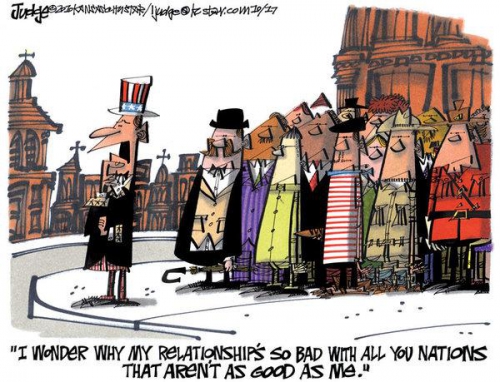






 del.icio.us
del.icio.us
 Digg
Digg